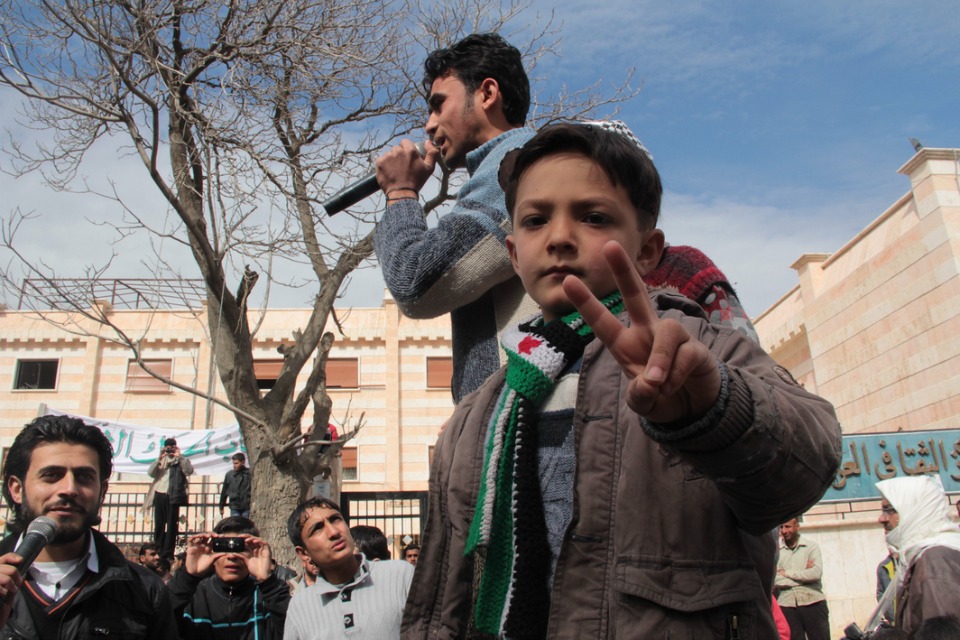"2015 must be the year in which a political process brings an end to the Syrian conflict"
Statement by Ambassador Mark Lyall Grant of the UK Mission to the UN to the Security Council Open Debate on the Middle East

Thank you Mr President for chairing this open debate and I would like to thank ASG Toyberg-Frandzen for his briefing this morning.
Mr President,
We meet today for the first Middle East Debate of 2015. On 30 December, in its last vote of 2014, this Council was divided on a draft parameters resolution on the Middle East Peace Process. As I said on that occasion in my Explanation of Vote, while we agreed with much of the text, which reflected long-standing United Kingdom and European Union positions, we did not agree with some elements of the text and were disappointed that there was no proper negotiation of it.
Despite these divisions, this Council shares the same core commitments to a negotiated settlement which leads to a safe and secure Israel living alongside a viable and sovereign Palestinian state; based on 1967 borders with agreed land swaps; Jerusalem as the shared capital of both states; and a just, fair and agreed settlement for refugees. Sadly, in 2014 the prospects for a two-state solution moved backwards, rather than forwards. We believe that in 2015, the Security Council should play a meaningful role in promoting a negotiated two state solution. And in doing so, we must draw on the lessons of last year:
Firstly, Israel and the Palestinian Authority must commit to resuming talks to allow for the political changes necessary to prevent a return to conflict. No one can fault the energy and commitment of US mediation efforts in 2014. But courage, determination and bold leadership are necessary on both the Israeli and Palestinian sides to make the hard decisions and compromises necessary to reach a peaceful negotiated settlement. The United Kingdom stands ready to support the efforts of international partners, including the United States, the European Union and those in the region, to encourage and assist the parties.
Secondly, all parties need to avoid taking steps which could further damage the prospects for resuming meaningful talks. We are deeply concerned by Israel’s decision to freeze the transfer of tax revenues to the Palestinian Authority. This is contrary to the 1994 Paris Protocol and Israel’s obligations as an Occupying Power. It risks undermining the financial stability of the Palestinian Authority. And it could have serious implications for the viability of a two-state solution. We urge Israel to revoke this decision and to refrain from taking any further punitive action, including settlement announcements.
We note the UN Secretary General’s communication that the Rome Statute of the International Criminal Court will enter into force for the Palestinians on the 1st of April 2015. Our priority remains achievement of a two-state solution. And we continue to believe that the best way to achieve this in reality and on the ground is through negotiations.
Thirdly, we must not forget Gaza. We welcome the positive steps taken by UN Special Coordinator for the Middle East Peace Process Robert Serry to facilitate the import and use of construction materials to rebuild Gaza. But demand is not being adequately met. And more needs to be done to address the humanitarian situation and kick-start Gaza’s recovery.
Fourthly, we remain open to a first ever UN Security Council Resolution on the parameters of a two state solution, which commands full Council support. We judge that this is possible, as long as sufficient time is allowed for proper negotiation.
Mr President,
In Syria, we are approaching four years of brutal conflict. Well over 200,000 people have now been killed. The majority of deaths are as a result of indiscriminate shelling of civilian areas by the Syrian regime. The repeated use of chlorine as a chemical weapon in northern Syria and the consistent reports from witnesses of the presence of helicopters at the times of the attacks leave little doubt as to the Assad regime’s culpability.
In December 2014 alone, there were at least nine separate reported uses of chemical weapons by the regime. The Security Council needs to act on these reports. The Assad regime’s ongoing brutality and its refusal to engage in a meaningful political process continues to drive the conflict and strengthen extremists such as ISIL.
The United Kingdom welcomes the timely adoption of Security Council Resolution 2191, which will allow humanitarian assistance to continue to be delivered in hard to reach areas within Syria, avoiding the deliberate delaying tactics that prevent cross-line humanitarian aid delivery from regime held territory. Even last Wednesday, which according to the Syrian Observatory for Human Rights was the first day for more than three years when no one was reported killed by military action, six people died as a result of severe weather conditions and lack of humanitarian relief.
We will continue to support the development of UN Special Envoy Staffan de Mistura’s proposals for a freeze in Aleppo to reduce the violence. We welcome the recent election of Syrian National Coalition President Khalid Khoja and encourage him to maximise the opportunity presented by the Egyptian-sponsored meetings later this month to further unite the Syrian opposition to speak with one voice against the twin evils of the tyranny of the Assad regime and extremism.
Mr President,
New energy is needed on the political track. The Moscow conference can be an element of this, but to be successful, we will need a broader initiative with UN backing and Security Council engagement. We encourage Russia to use its influence with the regime to help bring this about.
2015 must be the year in which a political process brings an end to the Syrian conflict.
I thank you.